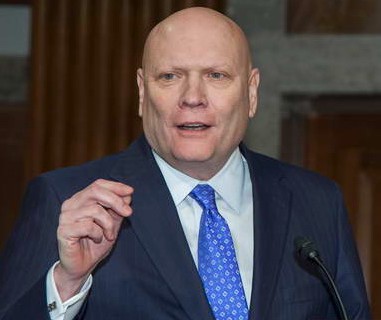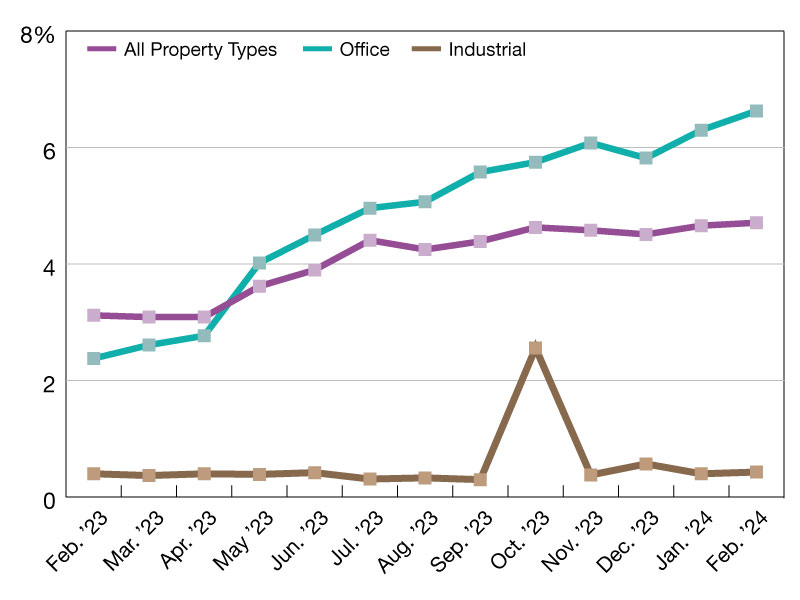Legislative Update: Will New Rules Temper Real Estate?
Executives discuss how the industry is faring from legislative measures that have recently passed—and the long-term effects they're likely to have.
By Amanda March
 Last year was remarkable for legislation promoted by the commercial real estate industry and becoming law: The Terrorism Risk Insurance Act was extended, Tenant Star legislated, partnership audit bill reformed and changes made to the Foreign Investment in Real Property Tax Act.
Last year was remarkable for legislation promoted by the commercial real estate industry and becoming law: The Terrorism Risk Insurance Act was extended, Tenant Star legislated, partnership audit bill reformed and changes made to the Foreign Investment in Real Property Tax Act.
As we head into the second half of 2016, the Real Estate Roundtable is now focused on “cleaning up” and making sure issues raised in 2015 are being implemented correctly by their respective agencies, noted president & CEO Jeffrey DeBoer.
“It’s also largely a year for preparing and educating members of Congress on issues coming up after the election year, particularly tax reform,” he said, noting a particular focus on like-kind exchanges and the ability to deduct interest on business loans.
But he believes some issues are still likely to be addressed this year. For instance, the Roundtable is still working with the International Council of Shopping Centers to fight for the collection of Internet sales taxes, and is advocating for the extension of the EB-5 program.
Following is an update on how the industry is faring from measures that have passed recently—and further effects they are likely to have.
High Volatility Commercial Real Estate: The HVCRE regulation within Basel III, which went into effect on Jan. 1, 2015, has already significantly impacted construction lending, noted Christina Zausner, vice president of industry and policy analysis at the Commercial Real Estate Finance Council (CREFC). In order to be exempt from an HVCRE designation, borrowers must meet a 15 percent equity requirement, and leverage cannot exceed 80 percent of the project’s estimated completed value.
“Over the past year, banks have been struggling with the HVCRE regulation, now that it is 1.5 times more expensive to lend in the construction space,” she said. “It also applies to all existing loans, even if you wrote (them) two years ago.”
As a result, many banks have taken the tack of not doing net business, she explained, either by maintaining or reducing construction lending. That particular piece is instead going to non-bank lenders.
Regulation ABII: There has also been regulatory pressures on CMBS, including the recent Regulation ABII, which requires issuers to certify the quality of loans they include in their pool. “While sponsors were doing it all along, it was an opportunity for regulators to apply a new level of scrutiny,” Zausner noted. “And that’s one of the major factors in why 40 loan sellers and aggregators are now down to 28.”
Risk Retention Rule: The industry is now experiencing the disruptive period from Dodd-Frank’s risk retention rule, which requires sponsors of asset-backed securities to retain at least 5 percent of the credit risk of assets underlying the securities. As a result, originators, issuers, investors and B-piece buyers are trying to figure out how to optimize CMBS.
“Firmer markets are more liquid and not as concerned with this rule, but market-making liquidity has eroded in CMBS this year, making it worrisome to adopt a new rule like this,” Zausner said. “Overall, we know that bank issuers and market makers are being parsimonious about balance sheets, meaning you have thinner margins and less room for mistakes.”
The year started with volatile capital markets, particularly unfriendly to CMBS, added James Flynn, executive managing director & chief investment officer for Hunt Mortgage Group. While pricing has recently stabilized, risk retention rules coming into effect at year’s end will again send us into uncertainty. “I believe there’s a significant risk of a slowdown in Q4,” he ventured, noting that while the long-term resolution is not clear, issuers purchasing vertical interest in new deals is part of the near-term solution.
Zausner predicted that banks will pick up some loans in the CMBS space, “while loans that win the beauty contest may well go to the insurance companies.” Regulatory dislocation is causing a change in fund flows, so better deals will go to REITs, funds and other bank lenders, she added.
Flynn noted that there is also opportunity on the private side for Hunt Mortgage and other investment shops to pick up market share and partner with institutional investors. “I would not be surprised to see a new product come out of this,” he said. “The market will solve the problem, but it just needs a little time to work it through.”
Lease Accounting Standards: Both the International Accounting Standards Board (IASB) and Financial Accounting Standards Board (FASB) issued new lease standards at the beginning of the year that will put all operating leases on balance sheets, turning them into liabilities, noted Michael Billing, managing director of portfolio strategy for JLL.
“As a result, there’s a big burden for companies,” he noted. “They have to make sure to have the right info, tools, technology and governance. … P&L statements are going to look a lot different.”
The timing on these changes is for fiscal years beginning Dec. 15, 2018 (FASB) and Jan. 1, 2019 (IASB). Public companies will not only need to start reporting under the new rules in 2019, Billing said, but will also need to report the two preceding periods as comparable under the new standard—so JLL is telling clients to start accounting under the new standards in 2017.
“There was a lot of crying wolf on behalf of the accounting standards boards over the past 10 years, so a lot of companies stopped focusing on the new standards,” he explained. “Most companies aren’t prepared and don’t understand the implications.”
JLL always advocates that operational requirements, flexibility requirements and the economics of the deal should take precedence over accounting implications, Billing noted, but some tenants will make their leasing decisions based on those accounting impacts.
And extra scrutiny will be placed on corporate real estate teams, impacting due diligence, reporting and the dialogue among tenants, landlords, the corporate real estate team and investors.
“Anyone who makes leasing decisions will be under the magnifying glass. So these standards need to be a priority now,” he urged.











You must be logged in to post a comment.